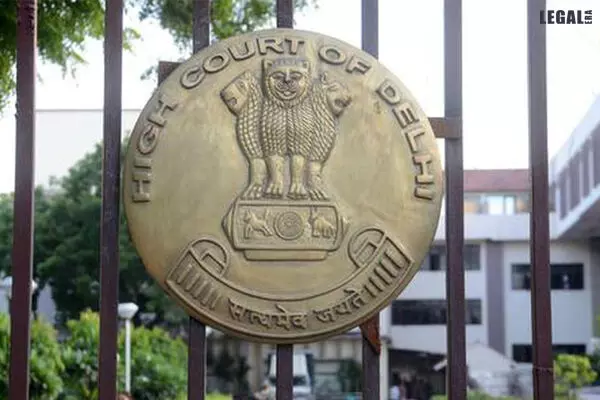- Home
- News
- Articles+
- Aerospace
- Artificial Intelligence
- Agriculture
- Alternate Dispute Resolution
- Arbitration & Mediation
- Banking and Finance
- Bankruptcy
- Book Review
- Bribery & Corruption
- Commercial Litigation
- Competition Law
- Conference Reports
- Consumer Products
- Contract
- Corporate Governance
- Corporate Law
- Covid-19
- Cryptocurrency
- Cybersecurity
- Data Protection
- Defence
- Digital Economy
- E-commerce
- Employment Law
- Energy and Natural Resources
- Entertainment and Sports Law
- Environmental Law
- Environmental, Social, and Governance
- Foreign Direct Investment
- Food and Beverage
- Gaming
- Health Care
- IBC Diaries
- In Focus
- Inclusion & Diversity
- Insurance Law
- Intellectual Property
- International Law
- IP & Tech Era
- Know the Law
- Labour Laws
- Law & Policy and Regulation
- Litigation
- Litigation Funding
- Manufacturing
- Mergers & Acquisitions
- NFTs
- Privacy
- Private Equity
- Project Finance
- Real Estate
- Risk and Compliance
- Student Corner
- Take On Board
- Tax
- Technology Media and Telecom
- Tributes
- Viewpoint
- Zoom In
- Law Firms
- In-House
- Rankings
- E-Magazine
- Legal Era TV
- Events
- Middle East
- Africa
- News
- Articles
- Aerospace
- Artificial Intelligence
- Agriculture
- Alternate Dispute Resolution
- Arbitration & Mediation
- Banking and Finance
- Bankruptcy
- Book Review
- Bribery & Corruption
- Commercial Litigation
- Competition Law
- Conference Reports
- Consumer Products
- Contract
- Corporate Governance
- Corporate Law
- Covid-19
- Cryptocurrency
- Cybersecurity
- Data Protection
- Defence
- Digital Economy
- E-commerce
- Employment Law
- Energy and Natural Resources
- Entertainment and Sports Law
- Environmental Law
- Environmental, Social, and Governance
- Foreign Direct Investment
- Food and Beverage
- Gaming
- Health Care
- IBC Diaries
- In Focus
- Inclusion & Diversity
- Insurance Law
- Intellectual Property
- International Law
- IP & Tech Era
- Know the Law
- Labour Laws
- Law & Policy and Regulation
- Litigation
- Litigation Funding
- Manufacturing
- Mergers & Acquisitions
- NFTs
- Privacy
- Private Equity
- Project Finance
- Real Estate
- Risk and Compliance
- Student Corner
- Take On Board
- Tax
- Technology Media and Telecom
- Tributes
- Viewpoint
- Zoom In
- Law Firms
- In-House
- Rankings
- E-Magazine
- Legal Era TV
- Events
- Middle East
- Africa
Delhi High Court: Arbitrator Can Deny Interest If Applicant Partially Responsible For Project Delays

Delhi High Court: Arbitrator Can Deny Interest If Applicant Partially Responsible For Project Delays
Justice Prateek Jalan of the Delhi High Court, has affirmed the reasonableness of an arbitrator's decision to deny pre-reference and pendente lite interest when the applicant is partially responsible for project delays. The Court emphasized that interpreting a contract and resolving claims based on that interpretation falls within the arbitral tribunal's authority.
The petition was filed under Section 34 of the Arbitration and Conciliation Act, 1996, challenging an arbitral award issued by a sole arbitrator. The dispute involved Kunal Food Products Pvt. Ltd. (Petitioner) and the Delhi Development Authority (DDA) concerning an agreement for the sale of a hotel plot. The plot was tendered by the DDA and allocated to the Petitioner via an allotment-cum-demand letter.
The project faced significant delays, with both parties blaming each other for the hold-up. The Petitioner completed the project beyond the original completion date of May 31, 2009.
In arbitration, the Petitioner presented three claims:
• Claim No. 1: ₹5.45 crores for business losses due to delays.
• Claim No. 2: ₹70,01,000 for a refund of the amount recovered by the DDA through invoking a performance bank guarantee.
• Claim No. 3: ₹5,30,649 for a refund of charges recovered by the DDA for commencing construction before obtaining the necessary sanction.
The arbitrator dismissed Claim No. 1, awarded Claim No. 2 with post-award interest at 12% per annum, and the Petitioner withdrew Claim No. 3.
The Petitioner challenged the award on two grounds: the denial of pre-reference and pendente lite interest on Claim No. 2, and the denial of costs. The challenge related to Claim No. 1 was not pursued.
The High Court noted that the arbitrator had thoroughly examined the reasons behind the project delays and concluded that both the Petitioner and the DDA were responsible. This conclusion was based on a detailed review of the agreement terms and documentary evidence. Since the Petitioner did not contest this finding, the Court deemed further investigation unnecessary.
Regarding Claim No. 2, the arbitrator determined that the DDA’s invocation of the performance bank guarantee was unjustified. Although the arbitrator did not assess whether the guarantee clause constituted a genuine pre-estimate of loss, he found that the delay was attributable to both parties. The hotel was operationalized with DDA’s permission in time for the Commonwealth Games, and there was no loss or damage warranting the bank guarantee’s invocation.
The Petitioner argued that denying pre-reference and pendente lite interest was inconsistent with the finding that the DDA did not suffer loss. However, the High Court found that the arbitrator had provided adequate reasons for denying these interests, citing the Petitioner’s partial responsibility for the delay. The Court ruled that contract interpretation and claim determination are within the arbitral tribunal's authority, and judicial interference is only warranted if the award lacks reasoning or if the reasoning is deemed perverse or arbitrary.
The High Court concluded that the arbitrator’s decision to deny interest until the award date, given the Petitioner’s partial responsibility for the delay, was reasonable. Consequently, the Court dismissed the petition.



